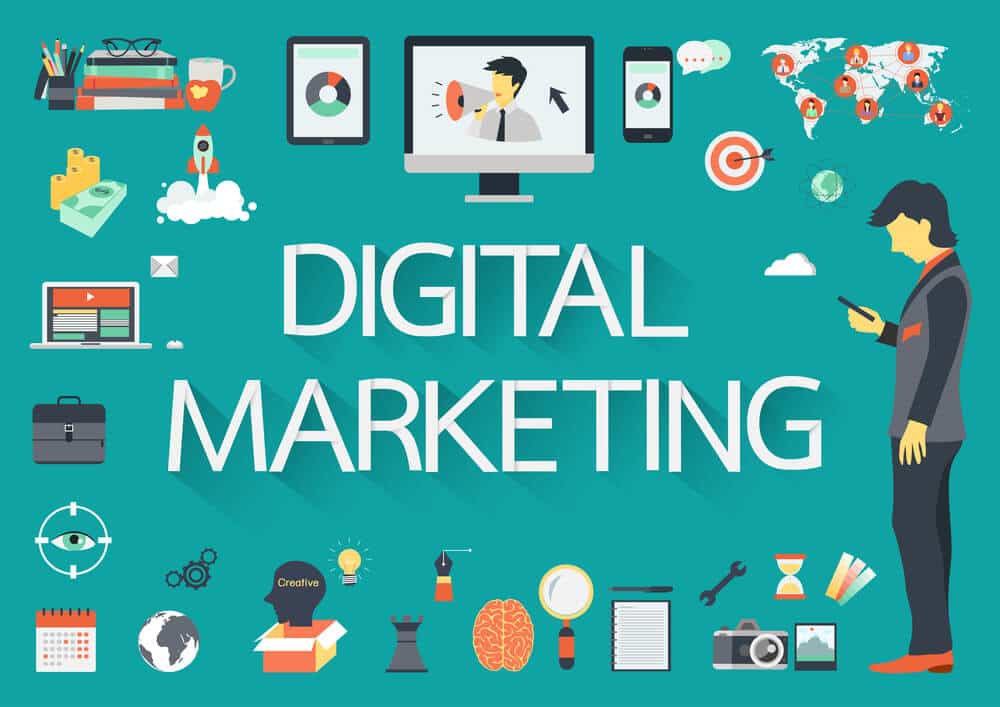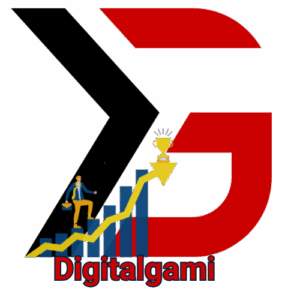What Is Digital Marketing? Digital marketing refers to promoting products, services, or brands using the internet and digital devices. It includes SEO, social media, content marketing, paid ads, email marketing, and more. In today’s digital-first world, every business—small or large—needs digital marketing to reach customers, generate leads, and increase sales.Digital marketing refers to the creation and dissemination of content through digital media channels—websites, landing pages, social media, email, and mobile applications—and the promotion of that content using a variety of strategies across paid, earned, and owned digital channels, including SEO, SEM, pay-per-clic

Why Digital Marketing Is Important
Digital marketing helps businesses connect with customers where they spend most of their time—online. It offers measurable results, cost-effective campaigns, and targeted reach.Digital marketing creates growth by allowing businesses to consistently contact customers and leverage digital data for personalised marketing efforts. Using digital marketing can expand revenue potential and growth.

Wider Audience Reach
Traditional marketing limits reach to a specific region. Digital marketing lets businesses reach global audiences instantly.
Cost-Effective Advertising
Even small businesses can run effective campaigns with small budgets using social media ads, Google Ads, and SEO.
Measurable Performance
Analytics tools help track clicks, conversions, impressions, and user behavior. This makes optimization easier and faster.
7 Key Components of Digital Marketing
1. Search Engine Optimization (SEO)
SEO improves your website’s visibility on Google. It includes keywords, backlinks, technical optimization, and high-quality content.
2. Social Media Marketing (SMM)
Using platforms like Facebook, Instagram, YouTube, and LinkedIn to promote your brand and engage with your audience.
3. Content Marketing
Creating valuable content such as blogs, videos, eBooks, and infographics to attract and educate customers.
4. Pay-Per-Click Ads (PPC)
Paid ads on Google or social media where you pay only when someone clicks your ad.
5. Email Marketing
Sending newsletters, promotions, and updates to build relationships and convert leads into customers.
6. Affiliate Marketing
Rewarding partners or creators for promoting your products.
7. Influencer Marketing
Collaborating with influencers to promote your brand to their audience.
How Digital Marketing Works
Digital marketing works by using targeted strategies to attract users online, engage them with useful content, and convert them into customers.
Step 1 – Attracting the Audience
Using SEO, blogs, videos, and social media.
Step 2 – Engaging Users
With email newsletters, lead magnets, offers, and social interaction.
Step 3 – Conversion
Turning users into leads or customers through landing pages, CTAs, and optimized funnels.
Benefits of Digital Marketing
9 benefits of digital marketing
- Global reach.
- Cost efficiency.
- Measurable results.
- Effective targeting.
- Increased engagement.
- Flexibility.
- Improved conversion rate.
- Social currency.
High ROI (Return on Investment)
Digital ads and SEO bring better returns compared to traditional marketing.
Targeted Marketing
Reach specific audiences based on interests, age, location, and behavior.
Faster Results
PPC, social media ads, and email campaigns give instant visibility and lead generation.
Conclusion
Digital marketing is essential for every modern business. It helps brands reach their ideal customers, build trust, increase traffic, and generate more sales. With the right strategies—SEO, content, social media, and paid ads—any business can grow and compete in the digital world. Whether you’re a startup or an established brand, investing in digital marketing ensures long-term success and sustainable growth.

